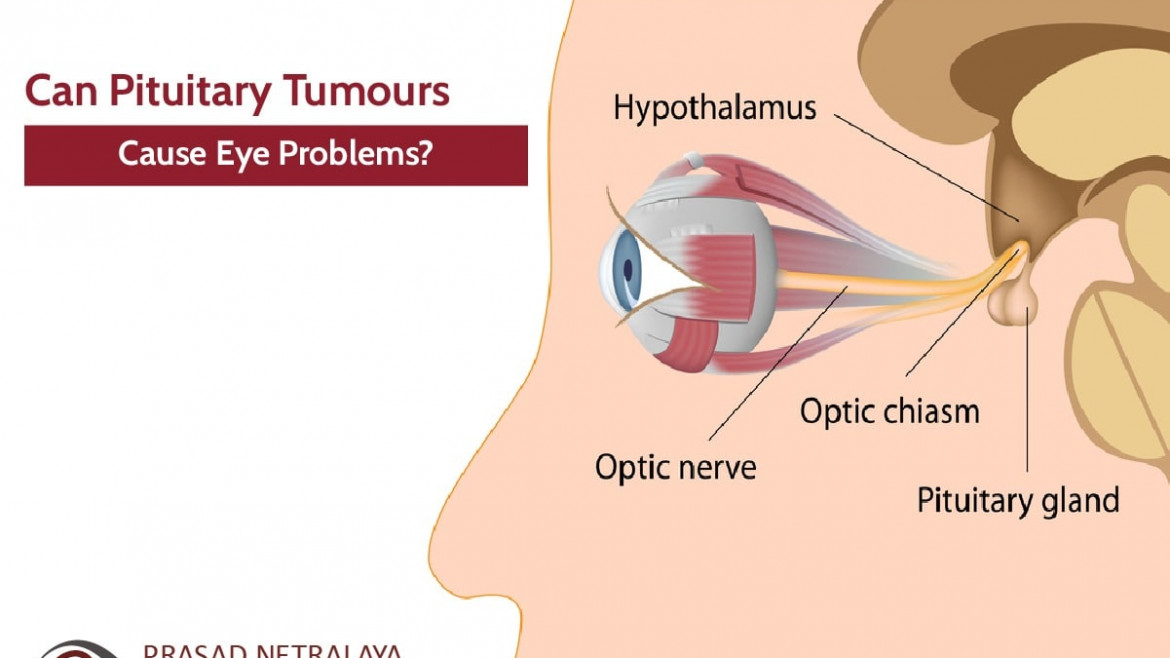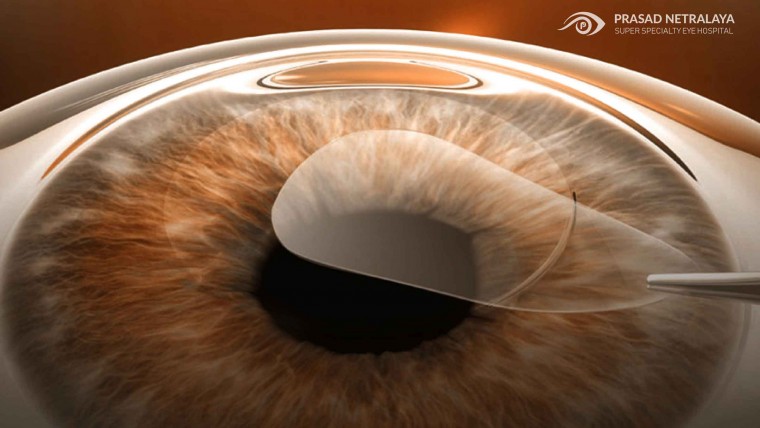Pituitary tumours, being the fourth most frequent, are usually slow-growing and non-cancerous—until they aren’t. A pituitary tumour might go unnoticed for more than ten years before causing symptoms.
They are often reported to be benign. They can, however, develop and expand into adjacent structures, causing neurological problems including vision impairment.
Before we get into how pituitary tumours cause eye problems, Let’s take a look at how the pituitary gland functions.
Table of Contents
What is a pituitary gland?
The pituitary is a pea-sized endocrine gland at the base of your brain, behind the bridge of your nose. It is often referred to as the master gland because it not only secretes its own hormones, it also tells the other glands to produce hormones. Therefore, a lot could go wrong if the pituitary gland doesn’t function properly.
What is a pituitary tumour and how does it affect your eyes?
A Pituitary Tumour, also known as a pituitary adenoma is normally benign and doesn’t spread to other organs. However, when it expands in size (large tumours: macroadenomas), it can put pressure on nearby structures, which include the nerves that connect the eyes to the brain, causing visible symptoms. These include 一
- Severe headaches
- Blurred or double vision
- Facial numbness or pain
- Sudden blindness
- Fainting spells (loss of consciousness)
How are pituitary tumours diagnosed?
Tests for pituitary tumour diagnosis begins with clinical impressions from patient history and findings during observation. An MRI is performed if a clinical suspicion arises. And if an MRI is not possible, a CAT scan is used instead.
If you’re wondering if eye specialists can spot and recognise pituitary tumours, they absolutely can! Hence, it is always advisable to get a regular eye examination even if you do not wear glasses or contacts. An annual eye exam could potentially help spot a pituitary tumour before it starts showing symptoms, saving your eyesight for the future.
Treatment for pituitary tumour
Small tumours might not require treatment. However, periodic MRIs and visual function tests are necessary to ensure that eyesight is preserved. When a patient is experiencing symptoms, it is usually treated with surgery, medicine, radiation or a combination of these therapies.
Even years after treatment, it is critical to monitor vision, visual fields, and imaging examinations (MRI scan) to ensure that the tumour does not recur.
As previously mentioned, you should have an eye checkup once a year, or more frequently if you are experiencing vision or eye health issues. If you’re showing any signs of a pituitary tumour or other vision problems, schedule an appointment right away rather than waiting until your next yearly exam.
At Prasad Netralaya, you can get consultations from the best eye specialists in Mangalore. Staffed with well-trained doctors, nurses and advanced technology you can expect the best treatment in coastal Karnataka!
Being proactive when vision problems arise, can help you save your eyesight now and in the future. So book an appointment with our experienced in-house ophthalmologists or call us at +91 9513596565 for a consultation.



